Marine Who Survived a Sniper’s Head Shot Thrives as Motivational Speaker, Veteran Advocate
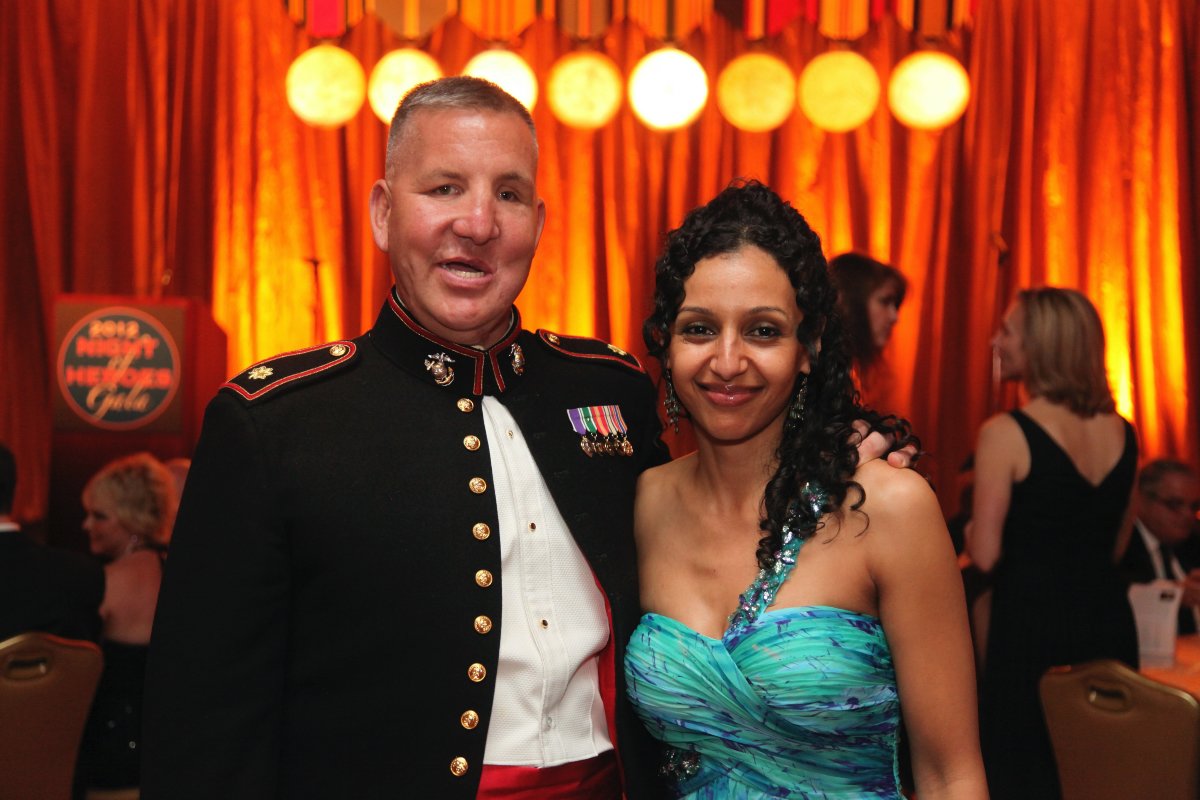
Justin and Dahlia Constantine at a gala in 2012. Photo courtesy of Justin Constantine.
On Oct. 18, 2006, Lt. Col. Justin Constantine was on a routine civil affairs mission in Iraq’s Anbar province when a sniper’s bullet hit him behind his left ear and exploded through his mouth, inflicting devastating damage. The Marines around him thought he was surely dead, but a young Navy corpsman rushed into action, performing an emergency tracheotomy so Constantine could breathe. He was rushed to the nearest field hospital, then Landstuhl Regional Medical Center in Germany. Doctors in Germany doubted he would survive the trip back to Walter Reed National Military Medical Center in Washington, DC.
“I’m the luckiest person you’ll ever meet,” Constantine said years later, standing on stage in front of a crowd at TEDxBeaconStreet.
The catastrophic injury briefly silenced Constantine, but now he continues to prove that, even without perfectly clear speech, he can motivate crowds and serve veterans.
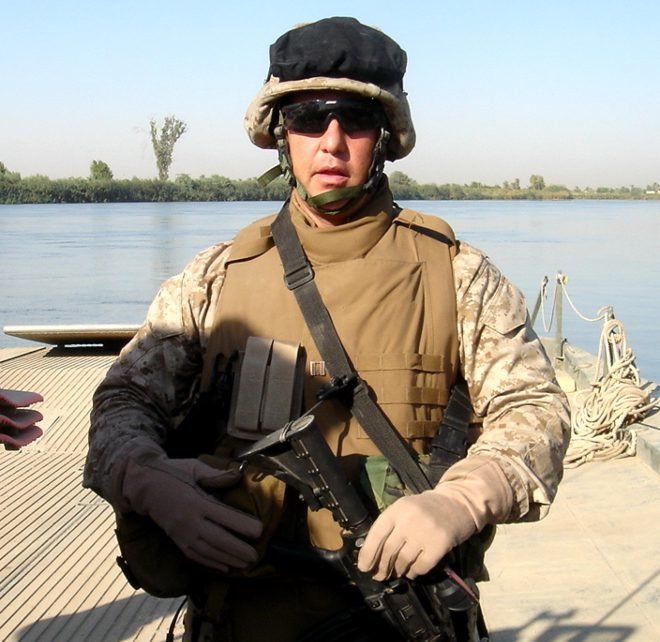
Growing up in Fairfax, Virginia, Constantine had always taken interest in the military. His father and brother served in the Air Force, and he applied for an ROTC scholarship in college. When he didn’t get it, he figured that was the end of his military aspirations.
While attending law school at the University of Denver, Constantine learned about a program in the Marine Corps for lawyers. He attended officer candidate school, finished his degree, earned his stripes as a criminal defense lawyer for Marines in Okinawa, and spent four years as a prosecutor at Camp Pendleton, California. Constantine, who had been a natural public speaker as far back as middle school, loved trial work and arguing in court.
He left active duty in 2004 and joined the reserves. Two years later, he heard a civil affairs group was looking for young officers to deploy to Iraq to work with local leaders to rebuild communities destroyed by the war. Constantine deployed that fall. Weeks later he was back in the United States, missing almost all of his teeth and in the midst of numerous surgeries using bones from his own hips and legs to reconstruct his face.
He said his girlfriend — now wife — Dahlia was the cornerstone of his recovery. She left a PhD program at Cambridge University to care for him.
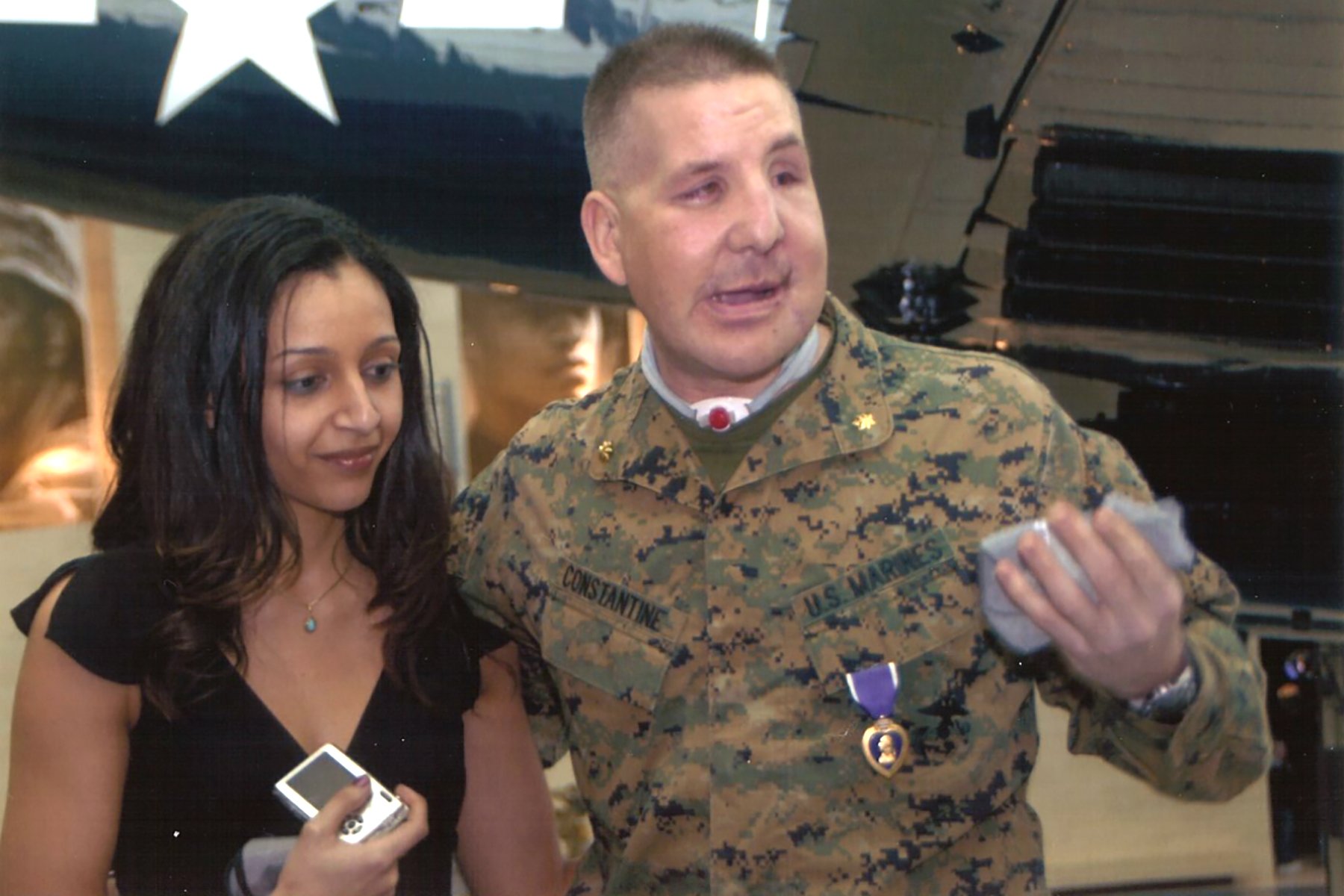
As he worked to recover, he took a job at the Department of Justice’s Office of Immigration Litigation, researching and writing briefs.
“It was perfect for me because I had no teeth at the time except four molars in the back so I couldn’t talk that well,” Constantine said. “I had my own office, didn’t have to talk. I could just write.”
He later worked on counterterrorism cases at the FBI, but on the side he’d been developing his own business in a surprising field: public speaking. He had been invited to speak at events for military members, veterans, and first responders and found he still enjoyed getting in front of a crowd. After authoring, My Battlefield, Your Office, a book about applying Marine Corps principles to the private sector, Constantine started speaking more at corporate events.
“I don’t speak perfectly clearly,” Constantine acknowledges. “That is a challenge. But I work hard to speak as clearly as I can.”
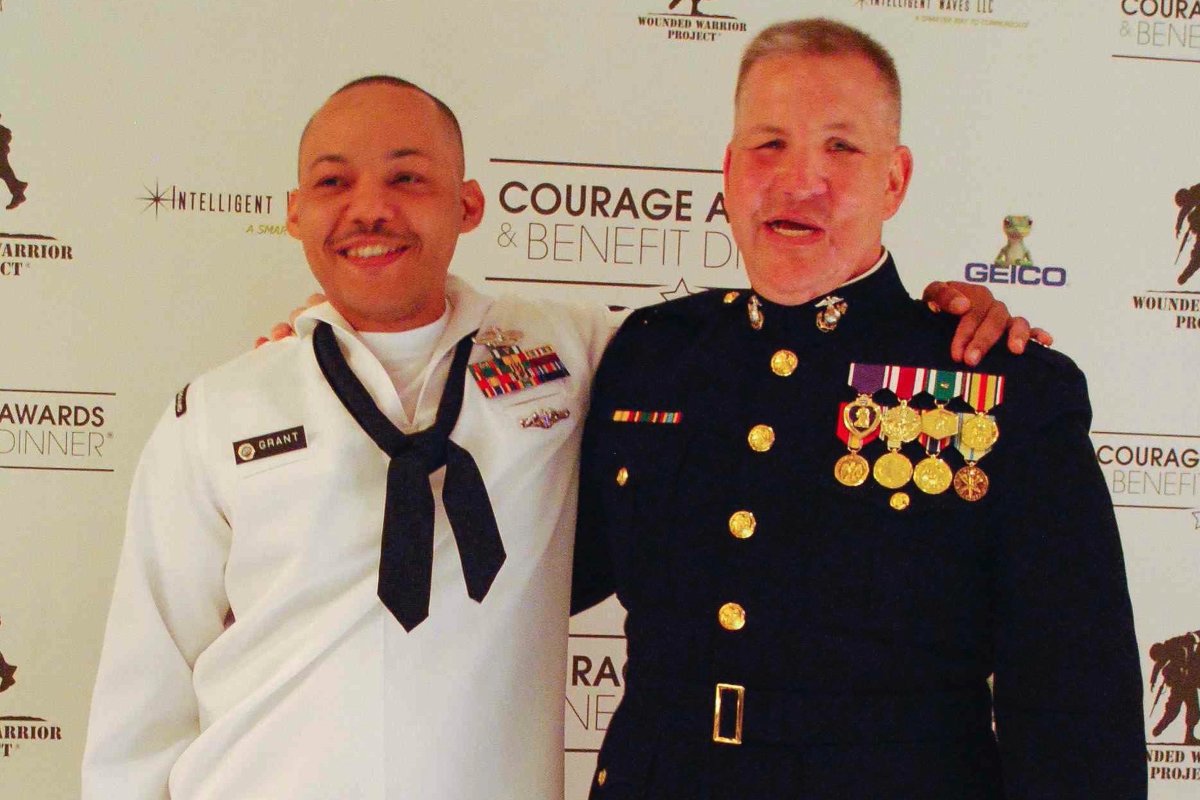
His imperfect speech is also part of his authenticity.
“This is what being wounded looks like,” he said. “Men and women today are surviving injuries that would have killed us in previous conflicts. But recovery takes a lot longer, and sometimes it’s permanent.”
Constantine has shifted the bulk of his time to helping other veterans and their families. His day job is at a tech company called JobPath, which helps veterans search for jobs, generate a resume, find mentors, and gain skills. Constantine had already made a name for himself as a leader in the veteran space when CEO Jack Fanous brought him on as chief business officer.
“He’s a great thought leader, and he works harder than anybody else,” Fanous said.
Constantine also co-founded the Veteran Success Resource Group shortly after meeting another injured veteran. Retired Army Capt. Scott Davidson and Constantine bonded over their own struggles transitioning out of the military and wondered how much more difficult it must be for lower-ranking men and women. They wanted to make a change.
“VSRG is our passion project,” Davidson said. They find as many veteran-oriented nonprofits and companies as they can and put them all in one room, then invite vets and their spouses to events where they can mingle, have a drink, and find whatever they need — mental health services, jobs, education, and more. The events bring in heavy hitters and celebrities from the veteran community and draw hundreds of attendees. VSRG has also begun hosting military markets where military families can pick up food, clothes, diapers, and other household necessities for free, no questions asked.

“People bent over backwards to help me, and like other veterans, I struggled with asking for help for quite a while. It’s okay to ask for help. People want to help,” Constantine said.
After recently undergoing what will hopefully be his final surgery related to being shot in Iraq, he still considers himself fortunate.
“I really really enjoyed my time in the Marine Corps and left a better person. I want to help provide that for folks.”
Read Next: Shot 10 Times in Afghanistan, Army Vet Finds New Calling as Musician
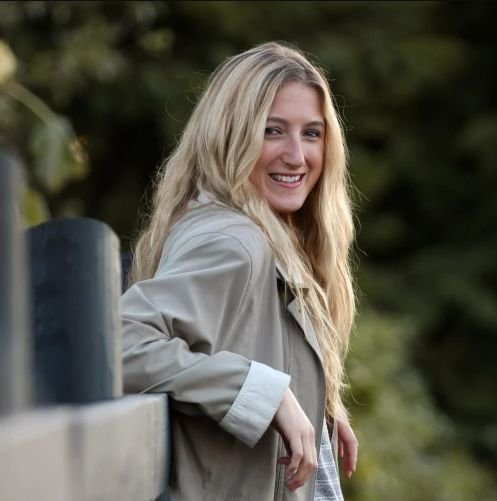
Hannah Ray Lambert is a former staff writer for Coffee or Die who previously covered everything from murder trials to high school trap shooting teams. She spent several months getting tear gassed during the 2020-2021 civil unrest in Portland, Oregon. When she’s not working, Hannah enjoys hiking, reading, and talking about authors and books on her podcast Between Lewis and Lovecraft.
BRCC and Bad Moon Print Press team up for an exclusive, limited-edition T-shirt design!
BRCC partners with Team Room Design for an exclusive T-shirt release!
Thirty Seconds Out has partnered with BRCC for an exclusive shirt design invoking the God of Winter.
Lucas O'Hara of Grizzly Forge has teamed up with BRCC for a badass, exclusive Shirt Club T-shirt design featuring his most popular knife and tiomahawk.
Coffee or Die sits down with one of the graphic designers behind Black Rifle Coffee's signature look and vibe.
Biden will award the Medal of Honor to a Vietnam War Army helicopter pilot who risked his life to save a reconnaissance team from almost certain death.
Ever wonder how much Jack Mandaville would f*ck sh*t up if he went back in time? The American Revolution didn't even see him coming.
A nearly 200-year-old West Point time capsule that at first appeared to yield little more than dust contains hidden treasure, the US Military Academy said.












